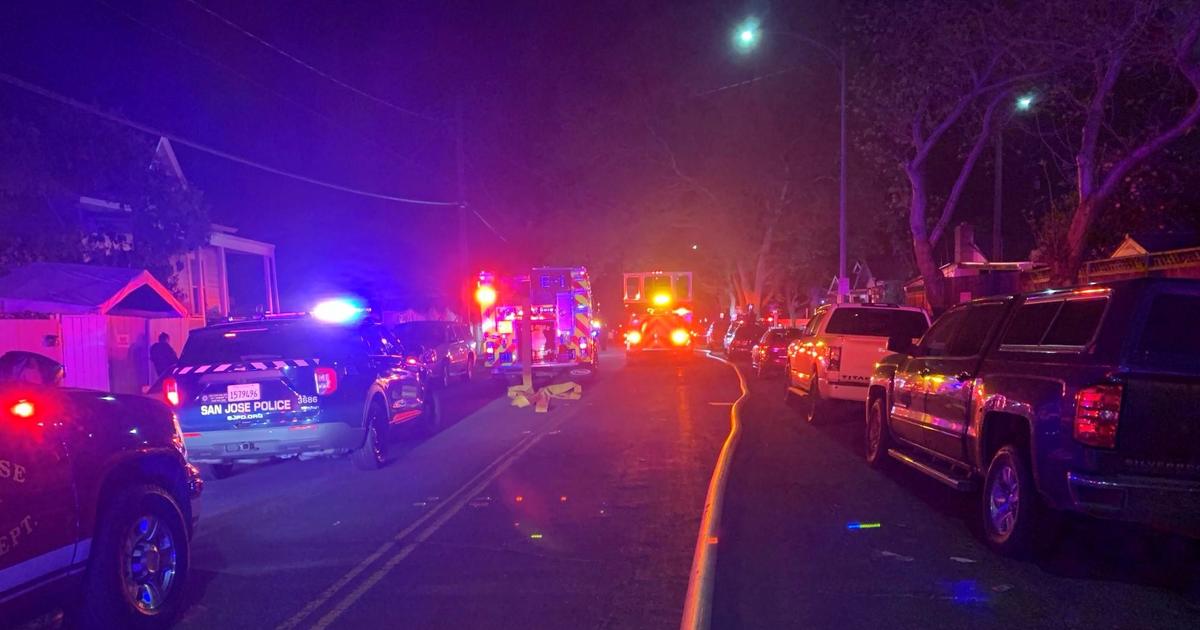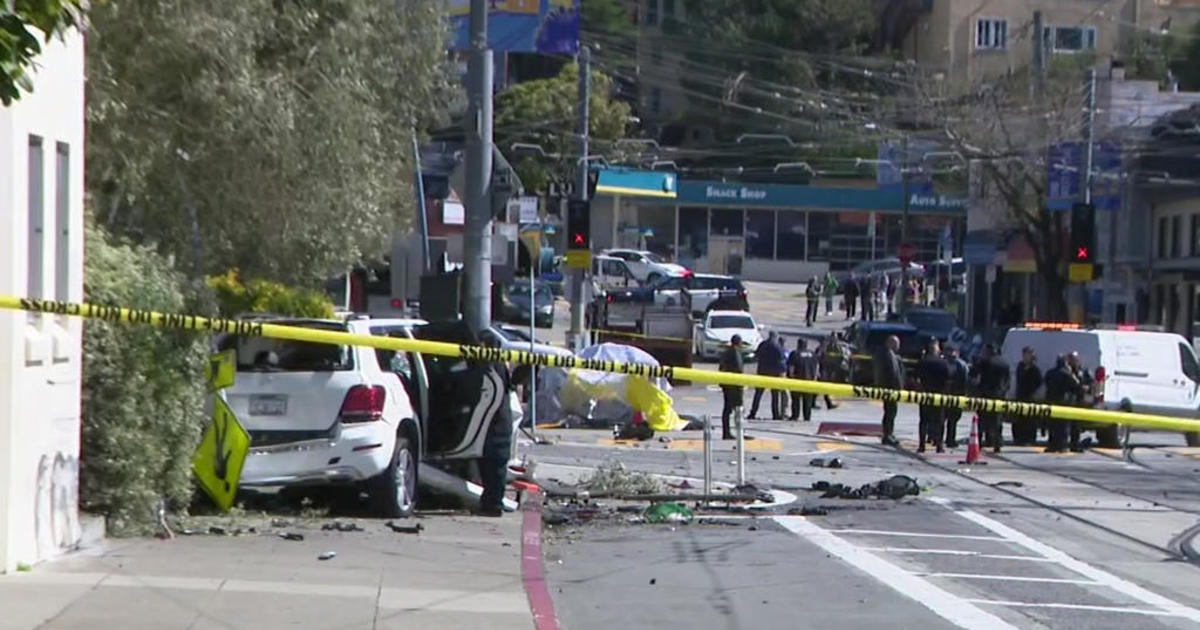Prince's Addiction Triggered Desperate Call To Mill Valley Doctor
MINNEAPOLIS (CBS SF/AP) — Prince's representatives arranged for the musician to meet a Mill Valley doctor to help him kick an addiction to painkillers shortly before his death, according to a newspaper report published Wednesday.
Prince's representatives called Dr. Howard Kornfeld on April 20, the day before the musician died, to seek emergency help, attorney William Mauzy told the Minneapolis Star Tribune .
Mauzy, who is representing the Kornfeld family, said Kornfeld couldn't immediately meet Prince, so he sent his son Andrew on a flight from San Francisco that night to discuss treatment in a meeting planned for the next day. Mauzy said it was Andrew Kornfeld — who works in his father's practice — who called 911 when Prince's unresponsive body was found in an elevator at Paisley Park, Prince's suburban Minneapolis compound.
According to Mauzy, Andrew made the 911 call because Prince's reps were too distraught.
Related Stories
- Some Argue Synthetic Opiate Treatment For Painkiller Addiction Simply Replaces One Drug For Another
- Authorities Release Details About 911 Calls Involving Prince's Paisley Park Estate
- DEA Called For Assistance In The Investigation Of Prince's Death
- Prince's 'Most Beloved' Family And Friends Bid Farewell
- Music Icon Prince Found Dead At Minnesota Home
A law enforcement official briefed on the investigation has told AP that investigators are looking into whether Prince died from an overdose. The official spoke on condition of anonymity because he wasn't authorized to talk about the investigation. The same official also said investigators are looking at whether Prince had suffered an overdose when his plane made an emergency landing in Moline, Illinois, less than a week before he died.
Kornfeld runs Recovery Without Walls in Mill Valley, California. His website describes the practice as "specializing in innovative, evidence-based medical treatment for chronic pain and drug and alcohol addiction." His son Andrew is listed on the website as a practice consultant.
Mauzy told the newspaper that Prince representatives called Kornfeld the night of April 20 because Prince "was dealing with a grave medical emergency."
Howard Kornfeld sent his son to explain how the confidential treatment would work, Mauzy said.
"The plan was to quickly evaluate his health and devise a treatment plan," Mauzy said. "The doctor was planning on a lifesaving mission."
Mauzy said Andrew Kornfeld arrived at Paisley Park at 9:30 a.m. on April 21 and was one of three people who found Prince's body. Mauzy said it was Kornfeld who called 911. A record of the 911 call shows the caller didn't know the address of the compound and mistakenly said it was in Minneapolis, rather than in the suburb of Chanhassen.
KPIX 5 spoke briefly with Andrew Kornfeld Wednesday morning at his Berkeley home, but he said he was not able to speak on camera and referred us back to his attorney.
Andrew Kornfeld took with him a backpack full of synthetic opiates used to help addicts break their addition to real opiates. On Wednesday night, prosecutors in Minnesota were looking to see if Andrew broke any laws by transporting the synthetic opiates.
His attorney insisted that no laws were broken.
"No drugs were ever administered. There was never any intention of drugs being administered to Prince by Andrew or Dr. Kornfeld," said Mauzy. "This is something that Andrew has done for years -- been a spokesman for the program and convince patients to go there and how it would be in their best medical interest to go there."
Mauzy said Andrew Kornfeld had been interviewed by Carver County investigators.
Unlike his father, Andrew Kornfeld is not a medical doctor.
According to his Facebook page, he studied Neuroscience and Behavior at UC Santa Cruz. He worked at Recovery Without Walls for about 5 years.
He then became Chief Executive Officer of Practitioner Plus in Berkeley, a company he describes as offering "strategic marketing, consulting and design for Bay Area health professionals."
Stuart Gitlow, an addiction medicine expert speaking without direct knowledge of Prince's case, questioned whether Howard Kornfeld and his son acted appropriately.
"If a physician feels that a patient is having an emergency, his obligation is to call an ambulance and get the patient to emergency personnel who can assess the situation — not to fly to the patient," Gitlow said.
"It's not routine for doctors to fly across the country to start people on buprenorphine," said Gitlow, a former president of the American Society of Addiction Medicine and a faculty member of the University of Florida. "That's something that can be handled locally."
People KPIX 5 spoke to in Mill Valley didn't even know addiction-treatment center Recovery Without Walls was located in the middle of downtown Mill Valley.
Even though there's no signage and it's housed in a discreet building, Recovery Without Walls is nationally recognized as one of the best clinics that treats opiate addiction.
The Drug Enforcement Administration and the U.S. Attorney's Office are joining local officials in investigating Prince's Death, the U.S. Attorney's Office said Wednesday in a written statement.
A law enforcement official briefed on the investigation has told The Associated Press that investigators are looking into whether Prince died from an overdose. The official spoke on condition of anonymity because he wasn't authorized to talk about the investigation. The same official also said investigators are looking at whether Prince had suffered an overdose when his plane made an emergency landing in Moline, Illinois, less than a week before he died.
Authorities haven't released a cause of death. An autopsy was done the day after Prince's death, but its findings, including the toxicology results, weren't expected for as many as four weeks.
Prince had a reputation for clean living, and some friends said they never saw any sign of drug use. But longtime friend and collaborator Sheila E. has told the AP that Prince had physical issues from performing, citing hip and knee problems that she said came from years of jumping off risers and stage speakers in heels.
TM and © Copyright 2016 CBS Radio Inc. and its relevant subsidiaries. CBS RADIO and EYE Logo TM and Copyright 2016 CBS Broadcasting Inc. Used under license. All Rights Reserved. This material may not be published, broadcast, rewritten, or redistributed. The Associated Press contributed to this report.



